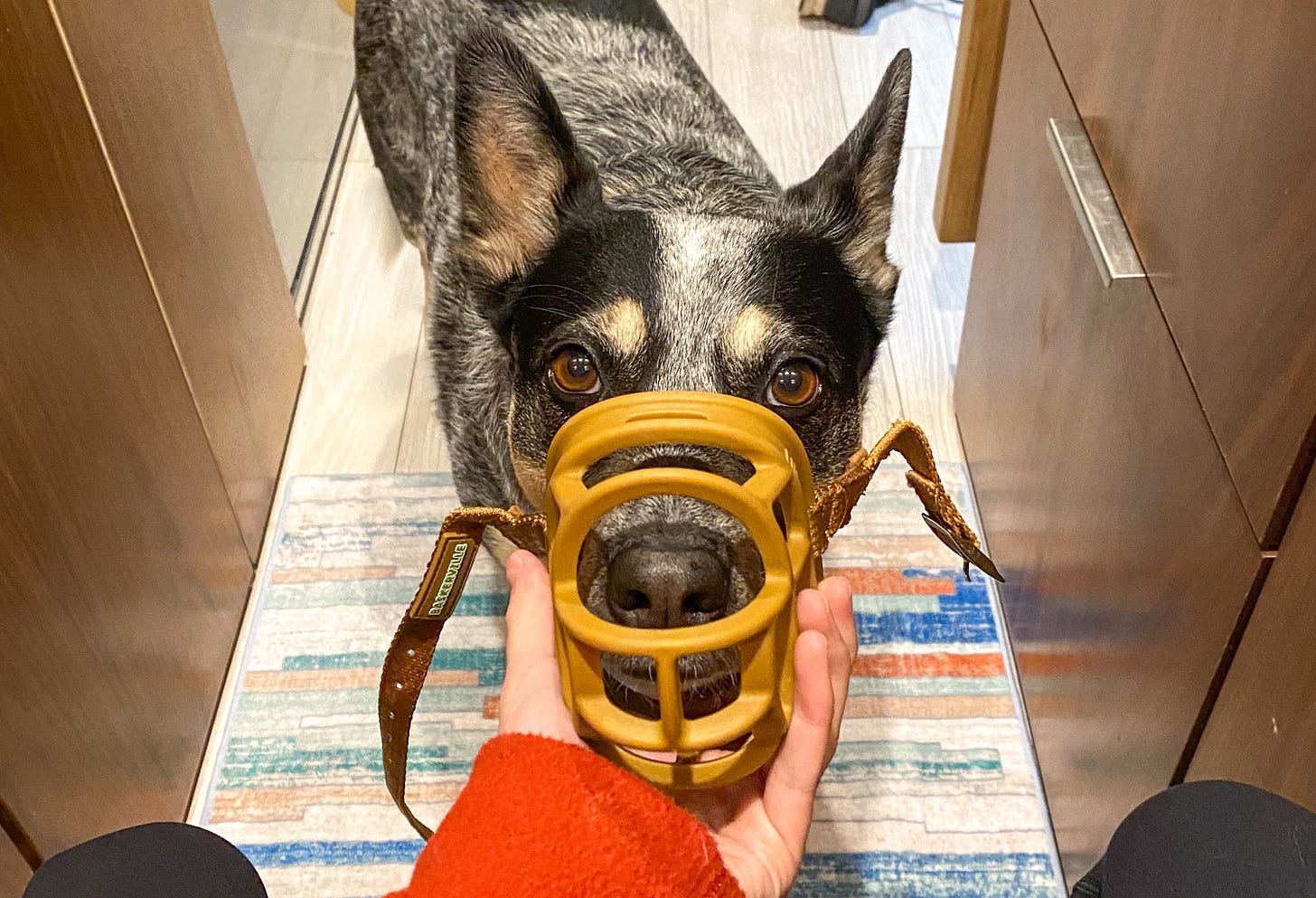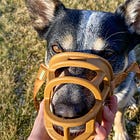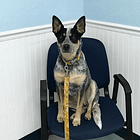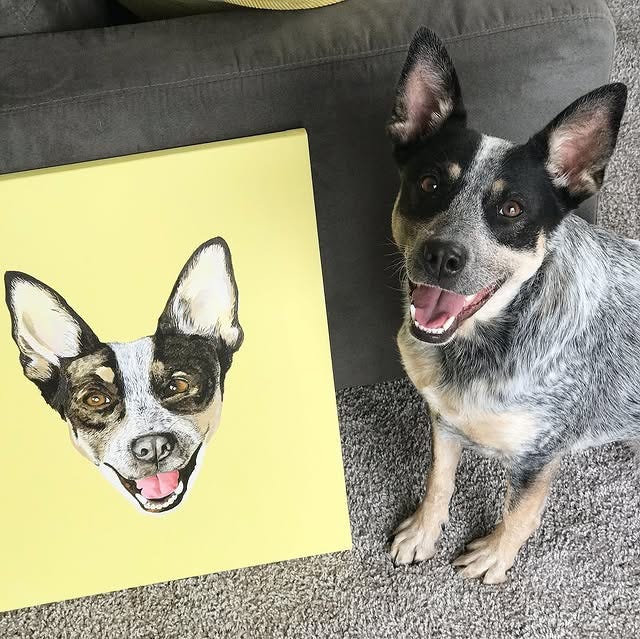I don't want the vet to "win over" my dog
Poking-and-prodding betrayal is worse coming from a potential friend.
As the end of the year approaches, so too does Scout’s annual exam—which brings up my (sometimes unpopular) thoughts about her relationship with our healthcare team.
Well-intentioned veterinary staff want to befriend my dog. Of course they do. They entered the field because they love animals! (And Scout is, if I may say, ludicrously cute.) Building trust at the start of an exam through gentle affection or games or snacks works for plenty of pets.
It does not work for mine.
Scout is wary of strangers. We bred cattle dogs to be this way, and she’s a particularly fear-prone individual. She’s also excellent at holding a grudge. My heeler can—and will—pattern-map any negative experience, projecting the Bad Thing That Happened Once into dozens of future situations.
This means it’s worse if someone first tries to make themselves trustworthy and then betrays her with unsolicited poking and prodding. There is no universe where Scout enjoys having her blood drawn (especially after the chaotic vet visits we suffered in the midst of her epilepsy diagnosis). There is no world where a cold stethoscope doesn’t make her flinch.
Even if she adores you, she will not like you doing those things.
Take me and Sean. We can handle Scout in myriad ways without fuss: nail filing, bur extracting, ear cleaning, butt brushing, tick removing, whatever she needs. We’ve put a lot of work into counterconditioning and desensitizing these necessary parts of life, but I’m under no illusions about our success convincing her they’re actually fun. Really it’s our relationship—a constant pursuit of mutual trust—that carries us through.
The friendship a vet tech can form with my dog in five or ten minutes doesn’t come close to the connection we’ve built over nearly seven years. They won’t make much progress in a clinical setting that smells like chemicals and other pets, anyway. And even if Scout does begin to trust them—let’s say she becomes 30 or 40 percent comfortable with this new person—it’s a bigger blow to go from “possible friend” to “wait you hurt me!?” than to start as strangers, do what needs to be done, and get the heck out of dodge.
Plus: Bad befriending experiences follow us outside the vet office, too. Now Scout has a backlog of episodic memories and looser associative learning where someone who at first seemed nice and respectful (in her eyes) later turned mean (again, in her eyes). She considers that in future interactions. The kind woman we meet on a walk? The sweet clerk at a pet store? She trusts their advances less because, in the past, her tentative curiosity has been met with betrayal.
I feel for the vets who just want my dog to like them. They’re incredible people doing an important job, and I wish I could add some simple joy in their days. I wish I could say yes, my dog will love you instantly! Yes, shower her with baby talk and nose boops! Yes, you’re best friends!
But I can’t.
Instead, when we moved Scout’s vet care to Wisconsin a couple years ago, one of the first things I asked our new house call team was “are you okay not being my dog’s friend?”
Our best case scenario is an efficient appointment with nothing but the necessary handling. No warm up, minimal cool down. Scout will stay still for an exam, vaccines, and blood draw because Sean and I hold her. She will allow the inevitable to happen with our support. Then she will flee to the door—away from the vets who are only doing what’s best for her—and I will not hold her back under some misguided belief that a few minutes of peace (or handfuls of treats) will erase the discomfort of what just happened.
Scout’s veterinarian is one of my favorite people. You bet I make sure she knows that! But she will never be one of my dog’s—and that’s okay.
Related reading
A few older posts about vet- and health-specific stuff with Scout.
In case you missed it
I recently pondered our dogs’ natural inclinations to match our own movements. (And included a bunch of writing, reading, and personal notes too.)
Other notes and news
It’s been six years since an old coworker painted me the below portrait of Scout, and seeing the photo pop up in my “on this day” memories inundated me with nostalgia. Look at that young, young dog 😭











Bravo!
I am so glad I found your posts. I have had so many of the same thoughts/experiences with my dogs, especially the last Cairn terrier we had who was extremely reactive. We got him used to wearing a muzzle (and he was well trained to go into his kennel with just a one word command). It kept him safe by keeping others safe. I had several vets express their appreciation for my use of the muzzle when I brought him in for his annual exams. When it came time for him to take his last breath, I had had the opportunity to discuss his issues with one of the vets at our hospital so he made provisions to ensure that our Rocky was calm and did not take his last breath with the muzzle on. I am so grateful for this particular vet (all of them are good where we go, he is just a little bit more outstanding). Thanks again for your writings, Haley.